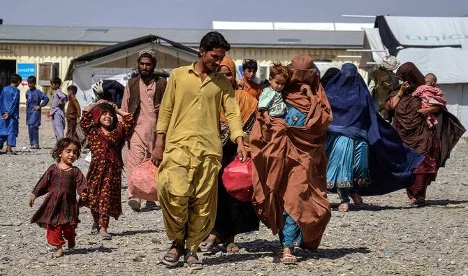Germany’s recent concern over Pakistan’s deportation of 211 Afghans who held resettlement rights in Germany exposes a deeper paradox in European refugee policy. While Berlin criticizes Islamabad for sending Afghans back, its own delayed admissions and controversial deportations undermine the moral ground on which it stands.
Berlin’s Delays and the Human Cost
When the Taliban stormed back to power in August 2021, Germany guaranteed humanitarian admission to at-risk Afghans, yet the process has been painfully slow. According to Germany’s Interior Ministry, more than 36,300 Afghans have been admitted under humanitarian schemes. However, activists point out that Berlin originally promised space for 1,000 arrivals per month, but only around 1,600 were resettled over two years. This sluggish pace left thousands stranded in Pakistan, living in legal limbo, exposed to arbitrary arrest and deportation.
The recent deportation of 211 Afghans approved for German resettlement, alongside the detention of nearly 450 others, highlights the consequences of this delay. German officials have shown concern over Islamabad’s action, but critics argue that Berlin’s hesitation to accelerate admissions amounts to an undeclared refugee ban. The contradiction becomes intense when considering Germany’s own policies: in July 2025, it deported81 Afghan men back to Taliban-controlled Afghanistan, its second such deportation flight since 2021.
Pakistan’s Security Burden and Western Criticism
For Pakistan, the crisis has a different aspect. Hosting Afghan refugees for over forty years, Pakistan has borne a huge economic and security burden. After the Taliban’s return, the country witnessed an increase in terrorism and economic strain, leading to the announcement of the Illegal Foreigners Repatriation Plan in 2023. Since then, more than many Afghans have been deported, with deadlines repeatedly extended under international pressure. The latest extension pushed the voluntary return deadline to September 1, 2025, affecting 1.4 million UNHCR-registered refugees and 800,000 Afghan Citizen Card holders.
Pakistan argues that its crackdown is a matter of national security, not hostility. Afghan refugees have been implicated in some militant incidents, and with the economy under pressure from IMF-imposed austerity, Islamabad insists it cannot shoulder the refugee burden indefinitely. Against this backdrop, Germany’s criticism rings hollow. While Berlin lectures Pakistan, it simultaneously coordinates deportations back to Taliban-controlled Afghanistan, thereby exposing asylum seekers to the very risks it condemns. The Guardian has called this policy “Europe’s other Afghan scandal,” accusing Western states of “forcing refugees back to Taliban rule while professing humanitarian concern”.
Caught Between Promises and Peril
The humanitarian consequences are severe. Refugees stranded in Islamabad live in constant fear of deportation. Many had already sold belongings in anticipation of relocation to Germany, only to be caught in a cycle of broken promises. A former Afghan journalist told Deutsche Welle that he has been detained several times despite holding approval papers for German admission, underscoring the precariousness of their status.
This is not merely a dispute between Germany and Pakistan; it is a symptom of a larger Western retreat from responsibility. During NATO and ISAF’s withdrawal, Pakistan sheltered millions, often at significant domestic cost. Yet Western states, despite lofty promises, have not matched words with action. Refugees remain caught in a policy crossfire: abandoned by those who promised resettlement, criminalized by the host state, and hunted by the regime they fled.
If Germany wishes to restore credibility, it must act decisively. That means expediting pending cases, protecting Afghans already approved for relocation, and halting its own deportations to Taliban-controlled Afghanistan. Rather than shifting blame onto Pakistan, Berlin should acknowledge its delays and adopt a refugee strategy grounded in clarity, speed, and moral consistency. Until then, Afghan refugees will remain victims not just of the Taliban, but of Western indecision and duplicity.

